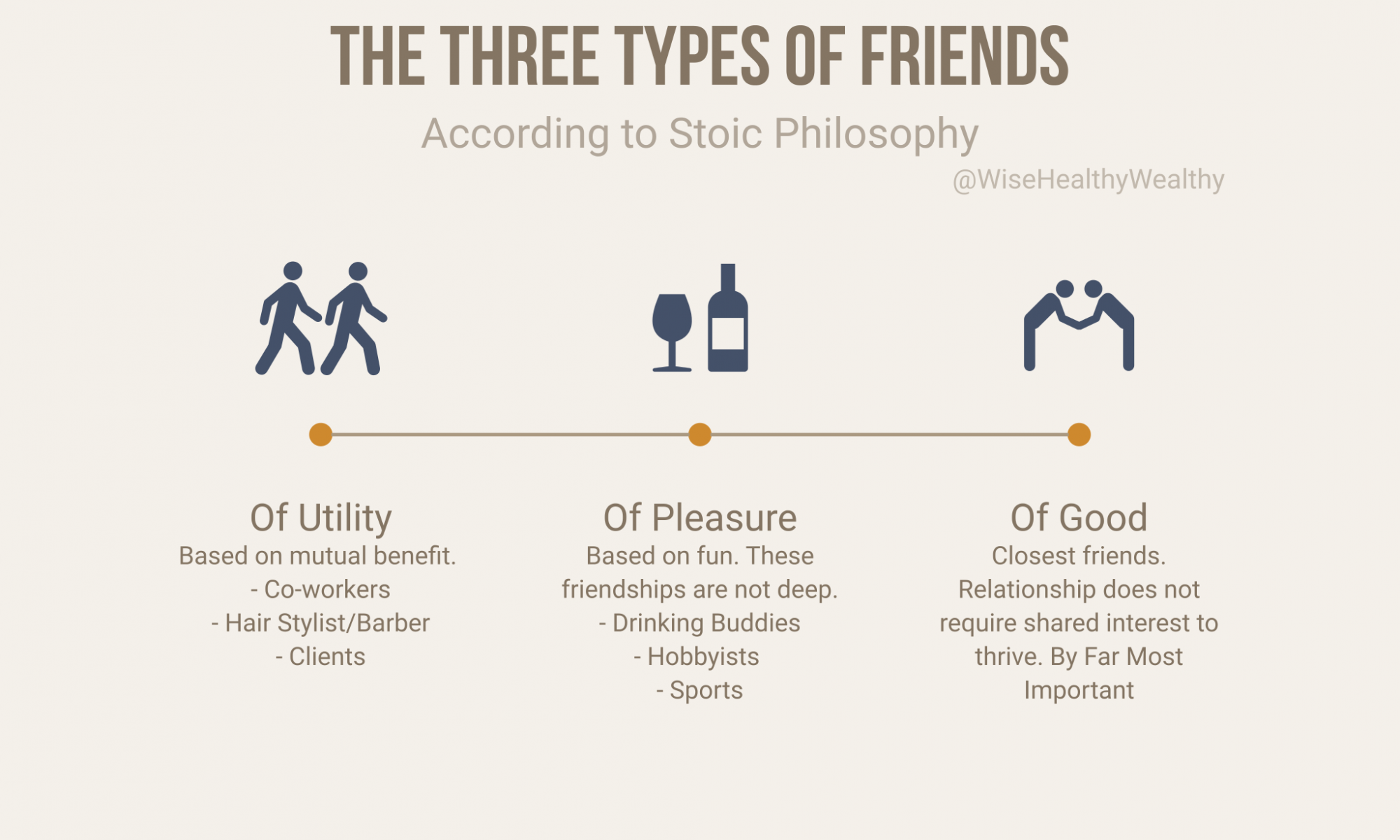As I said in my previous essay Aristotle on Happiness and Moral Virtues, happiness requires both complete virtue and complete life. Friendship is one of the necessary conditions to complete human life because a life isolated from the community cannot be considered sufficient. Aristotle asserts that a human being is a political animal by nature.[1] That is, man cannot fulfill his nature by himself alone. Moreover, friends are “the greatest external good” of a happy person[2] since he can benefit his friends in his good fortune and be benefited by the friends in ill fortune. Then too, a good person will be pleased by the activities of his excellent friends. And, he can strengthen his virtues by living with good friends.[3] Hence, friendship is necessary for happiness.
Furthermore, depending on the objects of love, Aristotle analyzes three kinds of friendship: namely friendship of utility, friendship of pleasure, and friendship of virtue. Firstly, friendship of utility loves for usefulness. This kind is like the friendship between buyers and sellers. Buyers receive items while sellers receive money in return. Secondly, friendship of pleasure takes pleasure as the object of love. For instance, an erotic lover feels pleasure seeing his beloved while pleasure of the beloved comes from being seen by the lover. These two kinds of friendship are based on senses which involve the principles of change. That is, whenever there is no longer usefulness or pleasure, friendship will be dissolved because those in these friendships do not find what they aim at. Lastly, “the complete friendship is the friendship of good people similar in virtue.”[4] And, because this kind is based on virtue, it is in accord with reason. In this friendship, one wishes good for his friend not because of usefulness or pleasure but because of the good of his friend himself. Friendship of this kind has three specific features of friendship: A loves B for B’s own sake; A loves B for what B really is; and A loves B because B has a virtuous character. Aristotle affirms that “this sort of friendship is enduring, since it embraces in itself all the features that friends must have.”[5] However, this kind is rare because few people can be found with these features. These features are more easily found in families in which parents regard their children as things belonging to themselves and children regard themselves as coming from their parents. Finally, all three kinds of friendship require time and intimacy because to become a friend, one must appear loveable to the other in any species of love. Time and intimacy are the necessary conditions so that people can realize things loveable in each other.
In conclusion, you can apply this philosophical position to your own life. In particular, you may examine your friendships with others and figure out to which kind your friendships belong. Also, you may have some ideas to win the complete friendship. As a result, a happy life will be your.
[1] Aristotle, Nicomachean Ethics 1097b.
[2] Aristotle, Nicomachean Ethics 1169b.
[3] Aristotle, Nicomachean Ethics 1170a.
[4] Aristotle, Nicomachean Ethics 1156b.
[5] Aristotle, Nicomachean Ethics 1156b.

